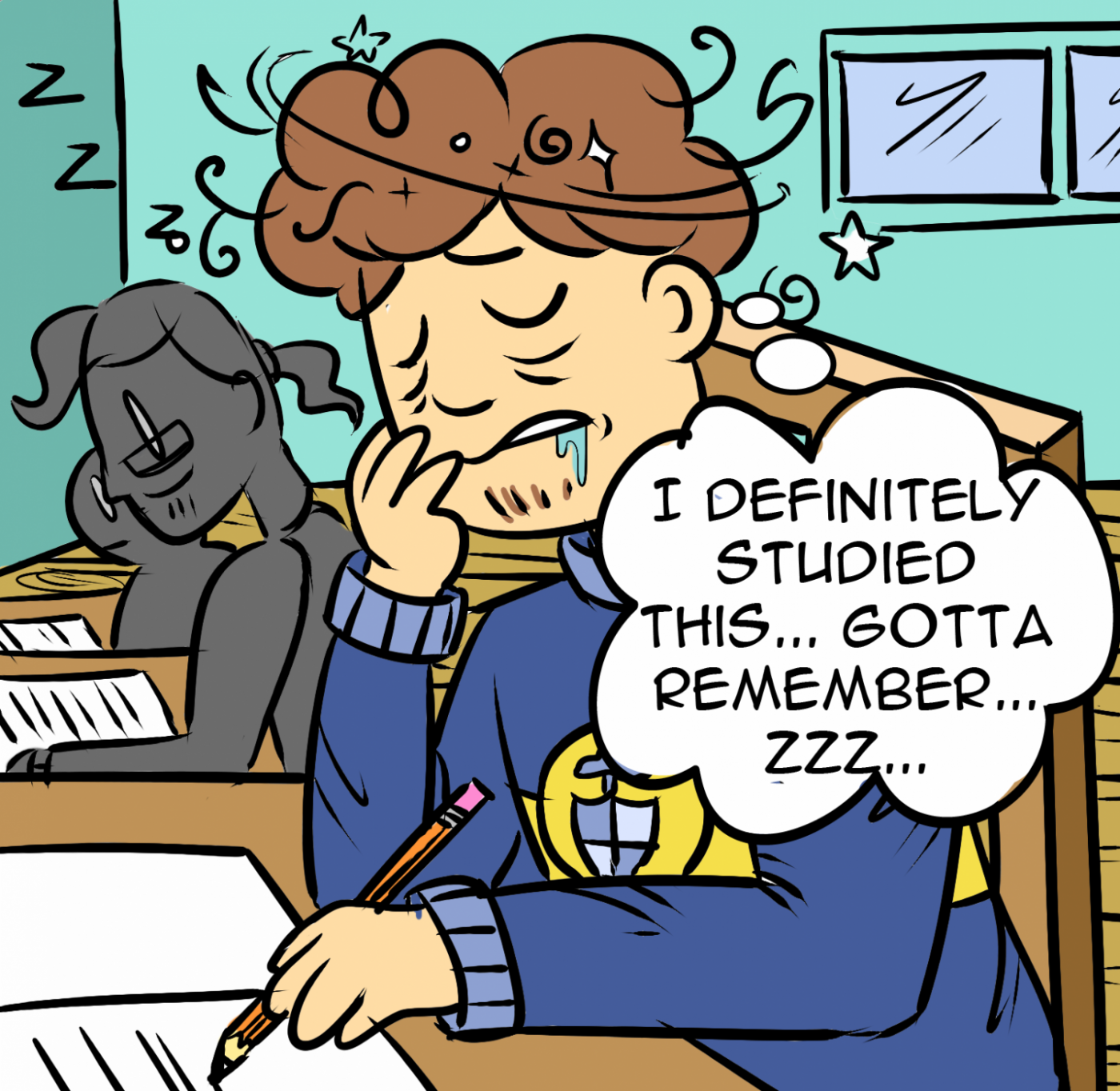
It’s the day before your exam. You sit down to review those final 10 chapters. By lunch time, you’ve only managed to get through two. You start reviewing Chapter 5 while eating your dinner. It’s 9:00 p.m. and you’re only halfway through Chapter 7. Midnight creeps up and you still have two more chapters to go. Your exam is at 9:00am. Do you still up late and keep studying or go to bed and get at least 7 hours of sleep? Studies show that a good night’s sleep has a positive impact on your memory and recall compared to cramming in those last two chapters before your exam late at night.
Great, you say, but what if I go to bed early and miss important concepts that are then on the exam! Yeah, that’s a problem too. The key is to create a balance between study and sleep. Here are a three tips to help you out:
Start studying 1-2 weeks in advance: Of course, the most obvious and repeated advice is to start things early so that you aren’t stuck at the last minute. “Easier said than done”, said one procrastinator to another. As a rule of thumb, I would not study any new material the night before the exam, but leave that night for review only. That way if I don’t get through all of my review notes, I am confident that I have the materials somewhere locked in my brain. “Easier said than done,” said the other procrastinator to the first one. Right, so how to put this into action?
First, mark a reminder in your calendar at the beginner of the semester that notifies you three weeks before each exam to sit down and make a study plan. This will force you start thinking about the exam earlier than usual.
Second, during that week, sit down and review all the units that you need to cover before the exam. Figure out how many days you have to study. So, if you are starting two weeks in advance, realistically you 9 days to study (14 days – 1 day for review + 2 weekends where you’ll probably goof off = 9 days).
Third, figure out how many chapters you need to cover each day in order to finish up in 8-9 days. Make sure to account for the other exams you also need to prepare for.
Fourth, write these goals down in your calendar or a notebook, and make sure to start studying on the first day no matter what. Even if you don’t get far, at least you started and are beginning to building up momentum and get your brain set on studying.
Fifth, keep track of your progress, so that you know if you need to put in an extra day or late night. It is easier to catch up over a couple days than it is over a couple hours. Then, if the night before your exam you are focused on review, you can stick to a reasonable bedtime even if you don’t finish everything, knowing that you covered it all at least once.
Only study what you need to know: So often as students we get carried away with wanting to cover absolutely EVERYTHING. That’s not realistic. You need to study smart. There are a few things that can do to help you to identify what to study and what to leave out.
First, attend the review session at the end of term. The TA or Professor will often provide you with a study guide or at least drop some hints. Don’t hesitate to ask what will be covered in the exam a class or two before the end of term, if they don’t explicitly lay in out for you. You’re doing yourself and your classmates a huge favor.
Second, attend lectures and tutorials regularly. The Professor is usually only going to test what he/she covered in class, not the whole textbook. Reading the whole textbook may provide you with useful supplementary information, but it likely will not be necessary for doing well on the exam. Instead, focus on understanding the key concepts, definitions, and examples that the TA and Professor bring forth in tutorials and class. You can also check for bold text or sections in the textbook. These are usually important key terms/concepts. The end of chapter review pages also help you to identify key concepts/terms. Knowing what you’re heading into, can help you to get what you need done before the exam and sleep easier the night before.
Ask for help sooner, rather than later: If you don’t understand something, don’t wait until the day before the exam to ask for help. Ask a friend, your TA, or Professor, if there is a concept in class that you really don’t understand after going to the lecture and reading the appropriate chapter in the textbook. The Professor’s office hours are there for a reasons, so please use them. Moreover, showing that you are engaged and attempting to understand the materials helps you to build a positive relationship with the Professor and TA. This relationship will be important in the future should you require reference letters or want to discuss a grade appeal. Trying to understand a difficult concept while under exam preparation pressure is an almost impossible task, so give yourself a leg up by asking questions early.
Being realistic about your study plan means that you definitely will be able to head to bed early before your exam, and possibly feel more rested during the whole exam period so that your brain is fresh and ready to go on exam day.
**All blog content is original created by Lisa Pfau and Patricia Huang. Please respect our intellectual property rights and do not copy any of this content without our prior permission. However, please do feel free to share widely.
**



